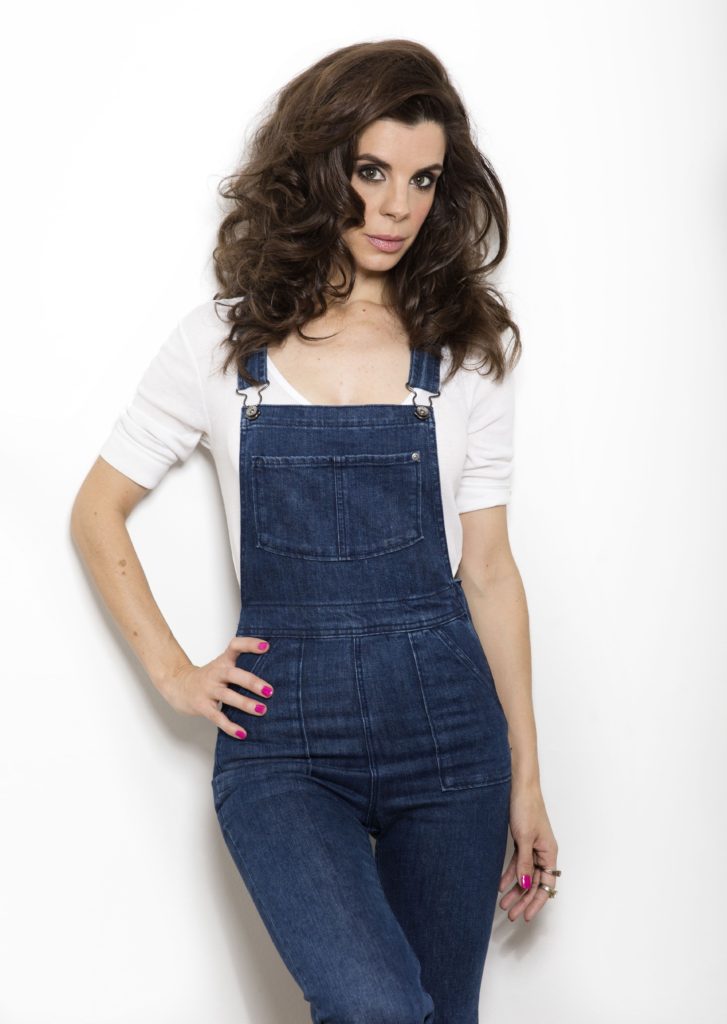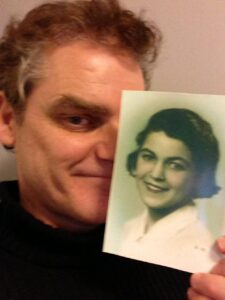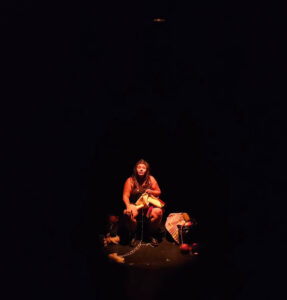
When I was twelve years old a Young Neptune tour came to my school. I had already been bitten by the theatre bug, so I was stoked regardless, but I remember that one of the performers stood out to me as being especially captivating. I made a mental note of her name and was sure she was going to grow up to be a big friggin deal. Her name was Meredith MacNeill. I was right.
Yesterday at the Hotel Halifax as part of the Women Making Waves Conference presented by Women in Film and Television Atlantic I got to watch Meredith MacNeill in conversation with Jackie Torrens about her life and career as an actor, a comedian, a writer, and as one of the creators and executive producers of CBC’s patriarchy-smashing Baroness von Sketch Show, now in its fourth season. It was incredibly inspiring. The following is a summary of the information that I found the most fascinating and empowering, distilled from Jackie Torrens’ thoughtful and intelligent questions and MacNeill’s candid and insightful answers.
MacNeill was born in Amherst, Nova Scotia, which she credits with teaching her, if not how to fight, how to embody the posture of someone who is ready for a fight, which she says can be helpful as a woman in the film and television industry. Her career began with the classics, she played Antigone at eleven years old in an adult community theatre production, encouraged by her drama teachers Beverly True and Bette Douglas. They also told her about the Royal Academy of Dramatic Art in London, England. MacNeill says as a young girl she thought, “I’ll probably go there. Whatever.” Looking back she credits that naive childhood confidence with paving the way for her to later audition and be accepted into the school. Before crowdfunding was mainstream online MacNeill raised money in her own community and beyond for school, saying that experiencing that kind of love and outpouring of support still overwhelms her, and contributed to the drive she had at RADA.
She says that she was drawn to the classics because she found comfort in the fact that people had been talking, writing, experiencing, and engaging with these big emotions of anger, love, pain, regret, and sadness from the beginnings of humanity, which made her feel less alone. She also loved looking at these iconic and historical figures and wondering what unique element of herself and her experience she could bring to the character. She says being from the East Coast, where drama and comedy are often so closely connected, she found herself often looking for the humour in these works. After graduating from school she went on to work at Shakespeare’s Globe Theatre, where she was encouraged to adopt an accent even in her everyday life. She balked at this advice saying, “If I start talking like this all the time, my parents will think I’m an arsehole.” Artistic Director Mark Rylance cast her as Lady Anne in Richard III.
Her classical career took an unexpected turn at an audition for a magazine ad for heat when MacNeill began to improvise with the script she had been given and ended up running and jumping impromptu into a large garbage can. This helped her get cast in the British sketch comedy series Man Stroke Woman. MacNeill felt like this opportunity was so far removed from her experience as an actor, she lacked confidence, and she realized that she would need to “remove her ego and become a sponge for this.” She says that she is not the sort of person who is able to succeed at things immediately on the first try, that she has to work on something over and over, picking herself up from failure each time, but once she gets it, it’s there. She later realized that this was a key ingredient for a productive writer’s room and film or television set: the ability to be able to fail without the fear of judgement.
She returned to Nova Scotia at thirty six after she got pregnant and lived for a time with her parents. She was filling out job applications for Tim Horton’s, citing their good benefits, when she got a call asking if she would like to be a writer for CBC’s This Hour Has 22 Minutes. She jumped at the opportunity. She says that at that point in her career she had several perceptions of the industry: the first being that she couldn’t wait to be cast in her dream jobs, she would have to write these parts herself, secondly that sketch is cheaper to produce and commercially viable, and thirdly that she wasn’t seeing a woman’s voice she could relate to on television in Canada. With all this in mind, shortly after she met Carolyn Taylor on 22 Minutes she approached her with the idea that they do their own show. Taylor took the idea and ran with it, assembling the other two cast members for a prospective show, and MacNeill flew to Toronto to meet with them. She knew immediately that it had to work, and credits Taylor for her insights in picking people who had the diverse skill sets that would benefit this kind of show, and credits Taylor, Aurora Browne, and Jennifer Whalen for being so generous with her from the beginning.
She stresses that they were not the first group of women in Canada to pitch the idea of an all-female sketch comedy show. They rehearsed their pitch relentlessly. They talked a lot about what they didn’t want in their writing room or on the production floor. They spoke about needing to make room for failure, to create an environment where people could be vulnerable, where people could feel comfortable to suggest an idea that hadn’t been fully formed yet, where people would be kind, and would work with open communication. MacNeill also says there were external factors at work as well, two years before #MeToo, it appears that it was the “right time” for a network like CBC to invest in a show like Baroness von Sketch Show. MacNeill, Taylor, Browne, and Whalen are all Executive Producers of the show, which MacNeill says means that there’s not just a single female voice behind an idea, there are four, and that strength in numbers can be invaluable.
MacNeill speaks specifically about a sketch she wrote called “Unfounded,” about a woman (played by Browne) asking an incompetent police officer (played by MacNeill) about the status of her rape kit. It is darkly funny, intelligently constructed, and shows the absurdity of the bureaucracy of rape that so many women have to navigate through. MacNeill says she was nervous about the response she might get, but said if she isn’t nervous about something, she questions whether it’s worth doing. She wrote the sketch, but felt like it needed to be collaborative, so she encouraged as many women as she could get to read it and to provide her with feedback. “It’s okay to use comedy to talk about hard things,” she said, “sometimes that’s the best way to start a more serious conversation.”
When an audience member references that Baroness von Sketch Show is being used by younger aspiring and emerging female filmmakers, television writers, show runners, sketch performers, and comedians as proof that men will watch an all-female sketch program and laugh MacNeill says, “I grew up watching men on television doing comedy and I laughed my ass off. So, when I hear people say that “even men” are laughing at our show I’m glad, but I also think, ‘Of course they fuckin’ are… because it’s fuckin’ funny.” She says that the knowledge that there are other women out there in this industry also creating work, and telling female driven stories is what allows her to breathe, knowing that a future exists for funny women in Canada.
You can stream all four seasons of Baroness von Sketch Show for free (in Canada) on CBC Gem. You can follow along on Social Media: Facebook. Twitter. Instagram (@baronessvonsketch).
You can find Women in Film and Television Atlantic on Social Media: Facebook. Twitter. Instagram (@Wift_at). For more about the Women Making Waves Conference check out this website.






